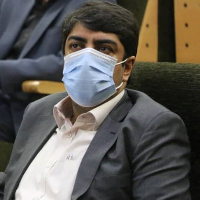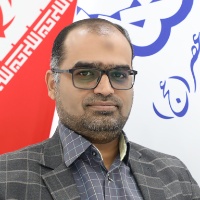Identifying the Organizing Elements of Medical Ethics and Professionalism Course:A Scoping Review
Medical ethics and professionalism are fundamental pillars of medical education, playing a crucial role in shaping the professional identity and ethical behavior of medical students. This study aimed to identify the organizing components of the medical ethics and professionalism course.
Relevant articles and theses were extracted from databases such as Scopus, PubMed, Magiran, and Irandoc using keywords including "Medical ethics", "Professionalism", "Medicine", and "Medical student." After applying inclusion and exclusion criteria, 33 articles and 2 theses closely aligned with the study's objectives were selected. A qualitative content analysis was conducted to identify the organizing components and elements of the medical ethics and professionalism course.
The findings revealed that the medical ethics and professionalism course should be designed based on 10 core components: curriculum objectives, teaching methods, teaching strategies, assessment methods, educational content, the year and duration of course delivery, supplementary educational materials, instructors, and challenges in teaching ethics and professional commitment. Curriculum objectives should be comprehensive and aligned with societal needs, while teaching methods should employ active approaches such as problem-based learning (PBL) and role-playing. Teaching strategies should emphasize critical thinking and reflection. Educational content should cover key concepts such as confidentiality, informed consent, and social justice, and be aligned with the cultural and societal values. Assessment should be multidimensional and include methods such as portfolios and 360-degree evaluations. The course should be delivered longitudinally throughout all years of medical education. Additionally, faculty training and addressing challenges such as the complexity of ethical concepts and the lack of clinical role models are key factors in the success of the program.
Ultimately, this study suggests that medical ethics and professionalism course should be designed and implemented in an integrated manner, based on societal needs, to train physicians with a high level of professionalism.
Key words: Professionalism, Medical Ethics, Curriculum
Funding: This research was conducted with financial support from the National Agency for Strategic Research in Medical Education (NASR). Conflict of interest: The authors of this article declare that there is no conflict of interest. .
Ethical considerations: This research was conducted with the ethical code IR.NASRME.REC.1400.004, obtained from the Ethics Committee of the National Agency for Strategic Research in Medical Education (NASR).
Authors’ contributions:- Conceptualization: Mahboobeh Khabaz Mafinejad, Mahdieh Azin, Foad Iranmanesh
-
Mostafa Hadavinejad, Mahdi Abdolkarimi, Mahdieh Azin
- Data collection: Foad Iranmanesh, Mahdi Abdolkarimi, Mahdieh Azin, Pouya Abedi, Mohammad Javad Ranjbar Karimi
- Formal analysis: Mostafa Hadavinejad, Mahboobeh Khabaz Mafinejad
- Supervision: Mahboobeh Khabaz Mafinejad
- Project administration: Foad Iranmanesh, Mahdieh Azin
- Writing - original draft: Mostafa Hadavinejad, Mahdieh Azin
- Writing - review & editing: All Authors
-
Crisis Management Strategies according to the lessons learned from the Covid-19 periods: a qualitative study
M .Karami *, M .Ziadini, M .Hadavinejad, M .Beheshti Far
Community Health Journal, -
Examining the Ergonomic Status of Rafsanjan Dental Students Using the RULA Method in 2022: A Short Report
Mostafa Sadeghi, , Elham Shakiba*
Journal of Rafsanjan University Of Medical Sciences, -
An Experience of Jigsaw as a New Educational Method in Dentistry
Atekeh Movaghari Pour, Mostafa Sadeghi, , Fatemeh Sadat Emami, Faezeh Esmaeili Ranjbar *
Journal of Mashhad Dental School, -
The challenging constructive deviation: Constructing a grounded theory in a public organization
Reyhaneh Yavari, *
Researches of Management Organizational Resources, -
Effectiveness of Educational Intervention Based on the Extended Theory of Planned Behavior on Exclusive Breastfeeding
Farahnaz Yazdanpanah, Mostafa Nasirzadeh, Hassan Ahmadinia, *, Fatemeh Askari
Journal of Research and Health, Nov-Dec 2024 -
The Survey of Health-Promoting Behaviors among Students of Rafsanjan University of Medical Sciences in 2022: A Descriptive Study
Mehdi Abdolkarimi, Mohammad Mobini Lotfabad, Hassan Khodadadi, Erfan Shahabinejad, Amirreza Shakoeizadeh
Journal of Rafsanjan University Of Medical Sciences, -
Gender Difference in Explicit and Implicit Motor Imagery Ability in Multiple Sclerosis Patients
Elham Salari, Fatemeh Ayoobi, Zahra Assadollahi, Hossein Azin, Pouya Abedi,
Iranian Red Crescent Medical Journal, Aug 2023 -
The Relationship between Exposure to Arsenic in Drinking Water and the Prevalence of Diabetes Mellitus in Two Urban Populations in the Southeastern Areas of Iran
Mohammad Kahnooji, Maryam Karimifar, , Hassan Ahmadinia, Seyed Ahmad Razavi, Ali Mohammad Madahian*, Hadi Eslami
Journal of Environmental Health and Sustainable Development, Mar 2023






